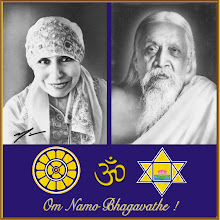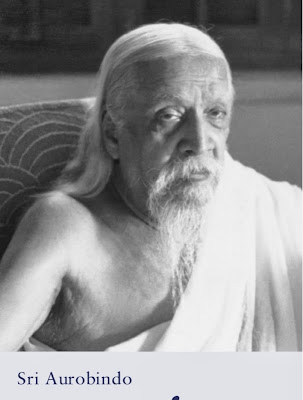You have said: “If you surrender you have to give up effort, but that does not mean that you have to abandon also all willed action.” But if one wants to do something, it means personal
effort, doesn’t it? What then is the will?
*There is a difference between the will and this feeling of tension, effort, of counting only on oneself, having recourse to oneself alone which personal effort means;this kind of tension,of something very acute and at times very painful; you count only on yourself and you have the feeling that if you do not make an effort every minute, all will be lost. That is personal effort. But the will is something altogether different.It is the capacity to concentrate on everything one does, do it as best one can and not stop doing it unless one receives a very precise intimation that it is finished. It is difficult to explain it to you. But suppose, for example, through a concurrence of circumstances, a work comes into your hands. Take an artist who has in one way or another got an inspiration and resolved to paint a picture. He knows very well that if he has no inspiration and is not sustained by forces other than his own, he will do nothing much. It will look more like a daub than a painting. He knows this. But it has been settled, the painting is to be done; there may be many reasons for that, but the painting has to be done. Then if he had the passive attitude,well,he would place his palette,his colours, his brushes, his canvas and then sit down in front of it and say to the Divine: “Now you are going to paint.” But the Divine does not do things this way. The painter himself must take up everything and arrange everything, concentrate on his subject, find the forms, the colours that will express it and put his whole will for a more and more perfect execution. His will must be there all the time. But he has to keep the sense that he must be open to the inspiration, he will not forget that in spite of all his knowledge of the technique, in spite of the care he takes to arrange, organise and prepare his colours, his forms, his design, in spite of all that, if he has no inspiration, it will be one picture among a million others and it will not be very interesting. He does not forget. He attempts,he tries to see,to feel what he wants his painting to express and in what way it should be expressed.
He has his colours, he has his brushes, he has his model, he has made his sketch which he will enlarge and make into a picture, hecallshisinspiration.Thereareevensomewhomanagetohave a clear, precise vision of what is to be done. But then, day after day, hour after hour, they have this will to work, to study, to do with care all that must be done until they reproduce as perfectly as they can the first inspiration.... That person has worked for the Divine, in communion with Him, but not in a passive way, not with a passive surrender; it is with an active surrender, a dynamic will. The resultgenerally is something very good. Well, the example of the painter is interesting, because a painter who istrulyanartistisabletoseewhatheisgoingtodo,heisableto connecthimselftothedivinePowerthatisbeyondallexpression andinspiresallexpression.Forthepoet,thewriter,itisthesame thing and for all people who do something, it is the same.

- From 'Questions and Answers'
|




